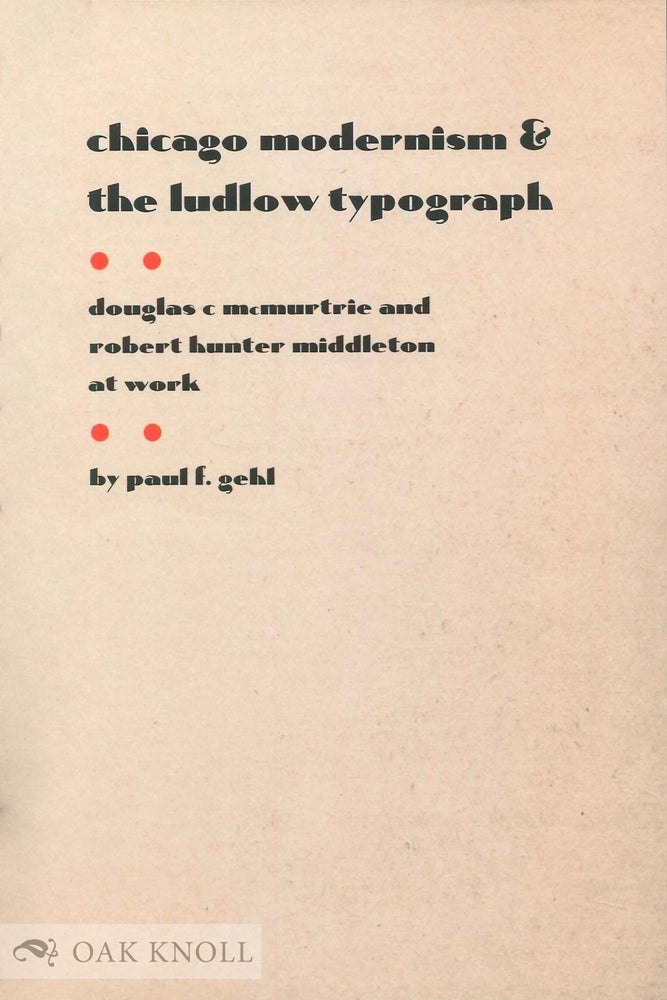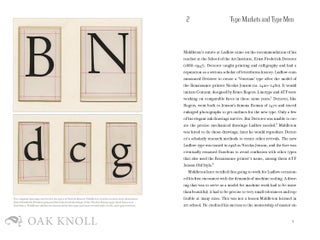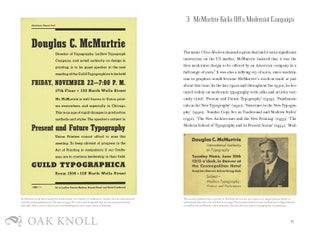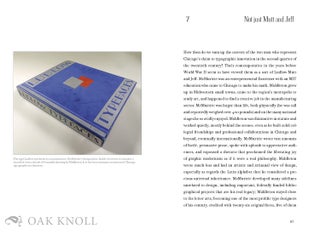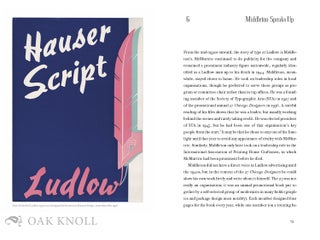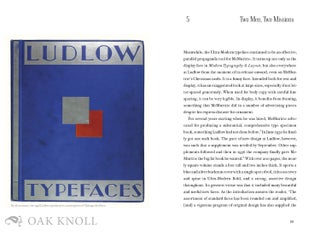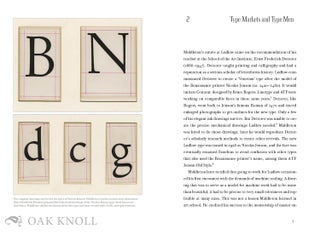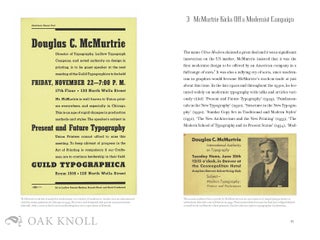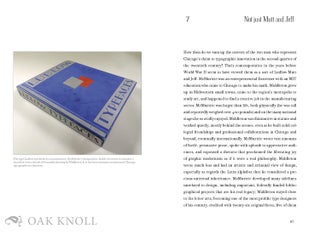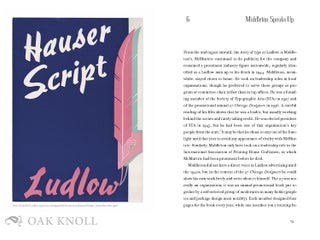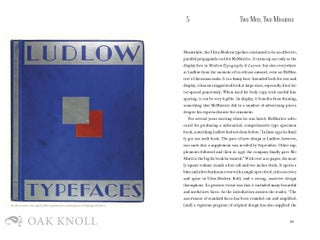CHICAGO MODERNISM AND THE LUDLOW TYPOGRAPH: DOUGLAS C MCMURTRIE AND ROBERT HUNTER MIDDLETON AT WORK.
- Australia: Opifex, 2020.
- 6 × 9 inches
- Paperback
- 144 pages
- ISBN: 9780648680710
Price: $45.00 other currencies
Order Nr. 135039
"Chicago Modernism and the Ludlow Typograph is copiously illustrated... Gehl's writing is lucid and jargon-free. His fluent and engaging manner makes the book a pleasure to read."
- Paul Shaw, Journal of Design History, Vol. XX No. XX
"...there is not a misplaced phrase here and [Gehl's] research is excellent... Gehl's masterful distillation is particularly welcome. It is also both readable and enjoyable."
- Steven Heller, Parenthesis 42
"At the core of Gehl's fascinating account of a most improbable yet successful typographic partnership is America's tentative steps toward Modernism at a time when revivalism remained prevalent and the modern spirit was considered to be culturally of dubious intent. Gehl chronicles in engrossing detail and with admirable clarity the subversive energies of McMurtrie, a modernist who would tell anyone willing to listen, and Middleton, a moderniser who preferred his typefaces to do the talking. That Ludlow had both on the payroll at such a momentous time was remarkable good fortune."
- David Jury
" In the community of design historians, no one knows more about Douglas McMurtrie and Robert Middleton than Paul Gehl. This account demonstrates his unequalled knowledge of those who have contributed to Chicago's unique design history. During nearly forty years at the Newberry Library, Paul has uncovered similar fascinating stories. My hope is that this essay is the first of many more to come."
- Jack Weiss
This is the first book to provide a narrative account of type design in Chicago during the years 1925-50, when American typographers and graphic artists confronted the arrival of European modernism. Robert Hunter Middleton and Douglas McMurtrie were prominent in the period and spoke for Chicago in the national debates. Neither man was a Chicago native yet both worked for the Ludlow Typograph Co., a manufacturer of type setting machinery. As Paul Gehl examines their years of working side by side, it becomes clear that differing experiences of the city and its design world created two different modernisms that can be traced in the beautiful types on which they collaborated, Middleton as artist and McMurtrie as promotional man extraordinary. Gehl shows how the new typography championed loudly by McMurtrie and practised quietly by Middleton took root in Chicago a decade before the arrival of the New Bauhaus, usually described as the singular turning point in Chicago design history. The Bauhaus Boys , as Chicagoans called them, introduced new ideas, but the seeds of their success were sown in the work of Ludlow's two modernist pioneers.
The narrative is illustrated with more than fifty images, the most extensive documentation of Ludlow's specimens and promotional material ever to appear in one volume, some of it never before reproduced. Foreword by Robert McCamant.
For more on the publisher, visit https://www.opifex.com.au.
Available in New Zealand and Australia from Opifex.
Author Paul F. Gehl also wrote a recent article in the Summer/Fall 2020 issue of the Chicago Art Deco Society Magazine regarding the history of Ludlow type design and McMurtrie's and Middleton's contribution to its success.

